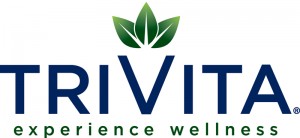Why do most work at home businesses fail? Is it a lack of will power or desire? Is it a lack of knowledge of “business” or just the business that you’re involved with? What about a burning desire to succeed, or the willingness to be coached? Do any of the items listed above have anything to do with the high rate of work at home failures?
I believe all of the items listed above can be the downfall of any home business. However, the one factor I believe that caused the most failures in home based businesses is the failure to listen. Yes, you read that correctly, the failure to listen. You see the majority of people love to talk. They talk about themselves; they talk about their family; they talk about their business; they talk abut their products; and they talk about just about everything else that involves themselves.
In all actuality, what these people are doing is selling. What are they selling? They are selling themselves, their business, and their products. And you know what? Most people hate to be sold! People love to buy, but they hate to be sold. So, if you want to become successful with your work at home business, ask questions and listen.
There is a lot of wisdom in the previous paragraph, because very few people ask questions and then stop to listen to the other person’s answer. However, if you find a successful home business entrepreneur I can almost guarantee you that that person is very good listener.
I received an email a while back, one that I kept in my archives. I’d like to share it with you because I think it makes a lot of sense, and goes straight to the point.
Will You Stop Talking Long Enough To Listen?
Have you ever been in the instance where you simply could not wait to blurt out what you wanted to say?
Have you ever wished you had said what you had said?
How many times have you gotten into an argument with someone, when neither person was listening to the other person?
Have you ever been in a discussion with someone, only to discover a little later, that both of you were actually saying the same thing?
“Out of the same mouth proceed blessing and cursing. My brethren, these things ought not to be so”
There is a big difference between hearing and listening
Listening involves 3 processes:
- Interpret: This is where you begin to take in the information and assess it. As you hear the information you begin to make judgments on what you hear. You begin to either agree or disagree on the information.
- Evaluate: This is when you begin to determine what you will do with the information. Is it useful or not useful? How will you find the information if you find it useful?
- React: This is where you have actually evaluated the information, and you have made a full determination of what you think about it. This is the most challenging of the 3 processes; because it is so much better to respond than to react.
There are 4 basic types of communication which people have:
- Phatic: This is the “getting to know you” or the “building of relationships” kind of talk.
- Cathartic: This is the release of “pent-up emotion” kind of talking. This is the spilling of
emotional information, troubles, concerns, etc.- Informative: This is the sharing of information, ideas, or data.
- Persuasive: This is used to reinforce information or ideas, or to change attitudes to produce a specific action.
“Our listening habits are not the result of training, but rather the lack of it” Studies have shown that we spend about 45% of our waking hours listening.It is interesting that we spend almost half of each day listening, yet it is one Tests have shown that immediately after hearing a 10-minute lecture, which was properly heard and understood:
of the least taught communication skills.
- Only one half of the information was retained
- After 48 hours, only 25% is retained
This means that of all things listened to, only 25% will be understood and retained for any real time period.
Good listening habits can be taught, yet they seldom are.
Learn how to listen, and your life will take on great new meaning.
That email, courtesy of the fine folks at Help End Hunger Now, is great for any line of business. If you deal with people on a daily basis you need to know when to talk, when to ask questions, and when to listen. If you do not now how to listen, learn! Yes, you can learn how to listen, and I believe it is necessary to succeed in any business, especially a work at home business. Why? I mentioned it before: “Most people hate to be sold!” On the other hand, most people love to buy.
If your home business can get a person out of debt, or can make a person some extra money so they can purchase that new car or home, they will buy into your business. However, do not try to sell them, but rather ask the right questions, and then listen to their answers. When they give you their answer, ask another question, and once again, listen to their answer.
Listening to become successful may take some time to get used to, just like any new behavior. However, if you are persistent and you learn the skill of listening, your chances of becoming successful with your work at home business will greatly increase. If you learn the skill of listening together with asking the right questions, I believe you will be successful.
If you’re looking to start a health and wellness home business, please contact me.
Jeffrey Sloe
Independent TriVita Business Owner, 12871028
440-725-3729
Visit My TriVita Business Site





